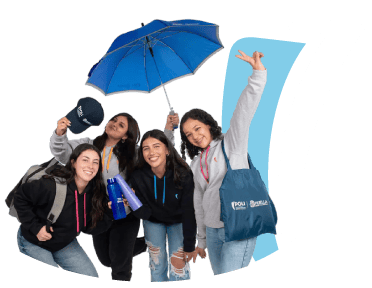I say, You say - Septiembre 2015

How true is it?
When faced with the possibility or the necessity of learning a second language, there are common beliefs that sometimes hold us back. However, there is very good news: most of these beliefs are just myths that science or experience have been knocking down.
Below we will discuss about some of these barriers that, consciously or unconsciously, we often find in our way.
1. Old parrots cannot learn how to speak (literal translation from a well-known Spanish saying).

This assumption is based on the fact that the four language components (semantics, grammar, phonology, and pragmatics) are fully developed by the age of 10. However, only adults can make full use of higher mental processes, necessary when learning a foreign language, such as analyzing, inferring, comparing, organizing, and categorizing, among others. Thus, “old parrots” do have the chance to learn a language, but we do it in a different way.
2. The best way to learn a foreign/second language is by imitating the way kids learned their first language.

Do you remember how you did it? If so, are you aware of the fact that we spent 16 hours a day (we cannot include the time when we were sleeping), for almost six years learning to communicate? Would you “buy” such an intensive, long course? If the answer is “NO WAY”, think twice the next time you believe in this revolutionary method. To begin with, it is physiologically impossible to learn the way kids do because our brains are different; while theirs are gradually developing, ours are fully developed and wired. Besides, we already know a language and cannot remove it from our brains. In fact, this is a perfect link for our next myth.
3. We have to think in English (or the language you’re learning)

Thinking is a spontaneous process that is affected by several variables: our feelings, worries, routines, environment, etc. Thus, it is often done naturally, using our mother tongue. However, it does not mean that, once in a while, we cannot deliberately talk to ourselves (what we do most of the time) in the language we are learning. In fact, successful learners apply metacognition, an activity that implies three useful strategies: talking to ourselves, monitoring, and evaluating. What we have to understand is that not only is it impossible to ignore our first language, but we can take great advantage of it by consciously comparing it with the language we are learning.
4. We will only learn a language if we live in a country where it is spoken.
Haven’t we all met people who live in the United States or other English speaking countries and yet have a quite low level of English? They can just say or understand chunks or statements that allow them to survive. The environment does help, but the only real engine to learn is willingness and self control.
And finally
These are just some of the many myths modern systems have successfully implanted in our brains. However, they do all bear some truth: we have to be as patient, spontaneous, and brave as kids are; the more we use the language we are learning (when thinking, playing, reading, talking, singing, etc.) the faster our competences will improve; and, if we have the chance to travel and be immersed in the language and culture we are trying to master, we will acquire some sort of sensibility towards the usage of that language.
Let’s just play what Peter Elbow (1973) called “The believing game and the doubting game”, explained as the understanding of truth as an elusive and a multidimensional concept. There is no such thing as an absolute truth; no facts that can be taken for granted. It is a matter of balancing assertions, capturing different facets, bringing good out of everything, and, at the same time, being suspicious about everything. In other words, don’t “swallow” everything others say about your own learning processes. Only then will you be able to answer in a more grounded way how true it is…

